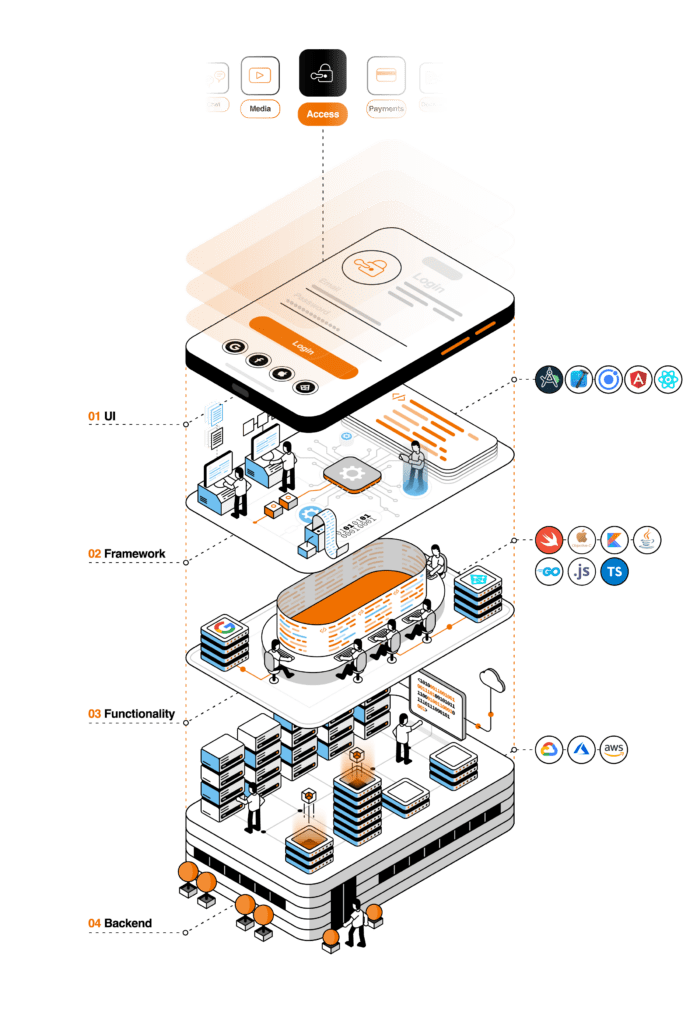Ionic Is Better With Onymos
The Ionic Framework is a wonderful and wildly popular open-source UI toolkit for building performant, high-quality apps using web technologies.
Onymos Features-as-a-Service, available for Ionic, is a suite of foundational app features for building complex enterprise apps using standard web tools.
They sound about the same, causing people to sometimes ask, “We are using/considering the Ionic Framework, why do we need Onymos?”
To answer this question, we need to examine the full extent of what Onymos Features-as-a-Service offers.
UI components + functionality components
As an example, let’s think about implementing login in a mobile app. We’ve all used a login feature. In general, we know what to expect from login, and developers have had to build login over and over across millions of apps.
And, sure, Ionic UI elements are great. It gives developers access to all of the interface components (e.g., inputs, buttons, icons for the user and password).
But that doesn’t constitute a full login “feature.” Developers still have to spend time and effort to implement the login functionality, the connectivity to social login providers, and user storage.
When you use Onymos Access, our login feature, all of that is taken care of ‘out-of-the-box.’ Just plug Onymos Access into your app and start, well, accessing. The last thing any development leader wants is for their most valuable resources (software development engineers) to waste time exploring the quirks and corner cases of login.

Customize, if needed
One of the unique aspects of Onymos is that customers can receive all of our app features as licensed source code. That’s why we call it Onymos (the opposite of “anonymous”). You know exactly what you’re getting.
That means dev teams can customize any aspect of Onymos Access, from the front-end look and feel to the cloud database. That’s true for all of our app features.
From “Touch to Cloud” — we did all the work
Onymos Access is everything from the logic running on the device to the actual Realtime Database where user details are stored in the cloud. Hence, the “Touch to Cloud” moniker.
The grunt work of data capture, storage, and retrieval is built into Onymos Access (actually, every Onymos app feature). Thus, saving you and your team the time and effort of building the end-to-end functionality.
But what if you already have a database? No problem! Just add your cloud provider’s keys to the Onymos Auth Object used to initialize Onymos in your app and your data is completely yours — no Onymos “middleman.”
Onymos complements the Ionic Framework. If your team is developing in Ionic, and you want to get your team focused on building business value rather than debating the intricacies of login (or chat, payments, OCR, and over a dozen others) then check out Onymos.